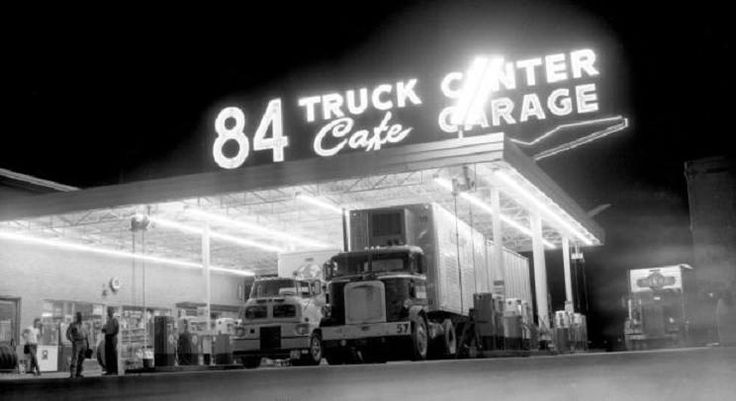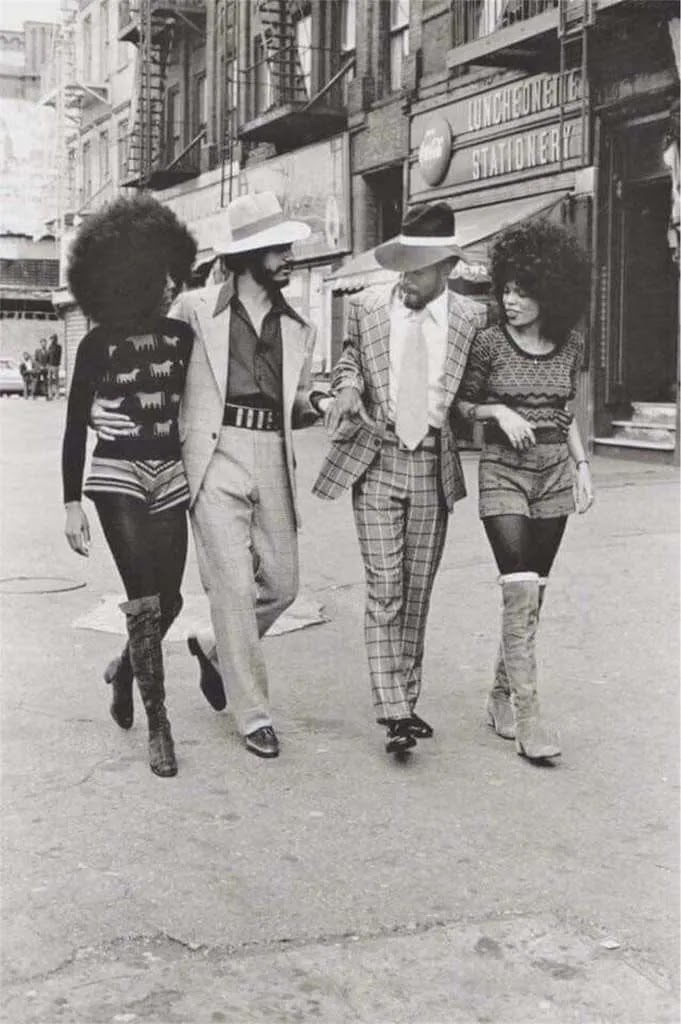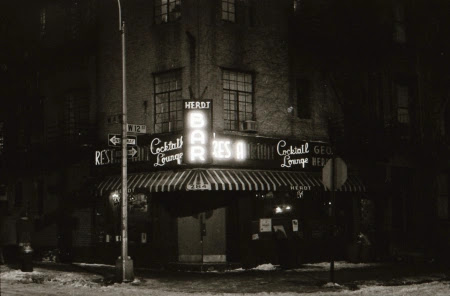"My mama done told me when I was in knee-pants, My mama done told me, Son, A woman will sweet-talk and give you the big eye, But when that sweet talkin's done, A woman's a two-face, a worrisome thing, Leave you to sing the Blues in the Night..."
Directed by Anatole Litvak (
Out of The Fog,
Sorry Wrong Number,
The Snake Pit,
The Lady in the Car with Glasses and a Gun)
Written by Robert Rossen and Elia Kazan and based on a play Hot Nocturne, by Edwin Gilbert. Cinematography by Ernest Haller (Mildred Pierce, Deception, A Stolen Life, The Unfaithful, The Come On, Plunder Road, The 3rd Voice, Why Must I Die?, Whatever Happened To Baby Jane?, ) and Music by Heinz Roemheld, Harold Arlen and Johnny Mercer.
Here is the second Noir that could be considered a "Gateway" Noir. It was first released in the United States on November 15, 1941.
I wrote this about Gateway Noir I Wake Up Screaming (January 3, 2016).
"The biggest problem of some critics and chroniclers of Noir with the film I Wake Up Screaming is that they don't know how to categorize it. It doesn't fit the carefully crafted "German Expressionism" influence scenario that they have worked out as the origin of Noir. It's Director H. Bruce Humberstone, never made another Noir, it's brilliant cinematographer, Edward Cronjager, never filmed another Noir so conceptually and visually it's a one off, one of a kind.
I'm calling it a seminal "Gateway Noir" because the film serves the same purpose as a gateway drug, it functions as a sort of gateway to Noir for those unfamiliar, at that point in time, with what eventually came to be known stylistically, and hard boiled narratively, as Films Noir.
Look at the film in chronological context, only Stranger On The Third Floor (1940) approaches it in Noir visual stylistics, while The Maltese Falcon (1941) released only twenty eight days ahead of it on October 3, has the hard boiled story by Dashiell Hammett, but barely any of the signature visual stylistics. I Wake up Screaming not only was based on the hard boiled novel by Steve Fisher and also has the brilliant Noir stylistics in abundance but it has much much more. You can say that the film has dissociative identity, multiple genres if you will. It's also a bit of a Screwball Comedy, a Romantic Drama, and almost a Musical. This seamless genre bending provides the "gateway" for Comedy, Romance, and Musical audiences at that time into the films that eventually will be pigeonholed into the future Noir cycle.
My assertion is that if you've screened I Wake Up Screaming after the various other Noirs it will seem a strange hybrid indeed, because of the conceptions you've already amassed. But, experiencing it as audiences did in 1941 it would probably seem fresh and innovative. Or weird and off putting, take your pick.
"Blues in the Night was met with a mixed critical reception upon its release. Hollywood columnist Fred Othman named it "the worst musical of the year".[(December 26, 1941). "Movie Critic Invites Dirk in Back as He Selects Ten Worst Film Plays for 1941". St. Petersburg Times.] Donald Kirkley of The Baltimore Sun called it "a bizarre...screen oddity"[Donald Kirkley (December 22, 1941). "Blues In Night". The Baltimore Sun.] while Los Angeles Times film critic Philip K. Scheuer praised Richard Whorf's performance[Philip K. Scheuer (November 14, 1941). "'Blues in the Night' Tuneful Melodrama". Los Angeles Times]." Wiki
Director Anatole Litvak a Ukrainian Jew who fled both Russia and Germany, and moved to France where he directed the hit Mayerling (1936). It was also an international hit. After that he came to work in Hollywood for Warner Brothers.
Cinematographer Ernest Haller (born in Los Angeles) started in the industry in 1914 as an actor with Biograph, then he transitioned over to cinematography. By 1920, he had become a full director of photography. Noted for Ten cents a Dance, Jezebel, The Roaring Twenties, Gone With the wind, Manpower. His other Noir's are, Mildred Pierce, Deception, The Verdict, Humoresque, The Unfaithful, The Come On, Plunder Road, Western Noir Man Of the West, The 3rd Voice, Why Must I Die, What Ever Happened To Baby Jane, and Dead Ringer.
The film has quite the cast. It stars Richard Whorf (Christmas Holiday) as Jigger Pine, a talented jazz pianist. Whorf never really made it big as an actor, but later as a director he did quite a few early Classic TV shows, and notably, 67 episodes of The Beverly Hillbillies.
Priscilla Lane (The Roaring Twenties, Saboteur, Arsenic and Old Lace, Bodyguard) as Ginger "Character" Powell, the band's first singer. Lloyd Nolan (Time To Kill, The House on (2nd Street, Somewhere In The Night, Lady In The Lake, A Hatful Of Rain, Portrait In Black, Girl Of The Night, Hanna And Her Sisters) Plays Del Davis. He's a gangster, a racketeer and escaped con. Betty Field (Kings Row, The Southerner, Bus Stop) is the chanteuse Kay Grant, Del's scheming former girlfriend.
Jack Carson (Mildred Pierce, The Tattered Dress, Cat On A Hot Tin Roof) as Leo Powell, Character's loud-mouthed, trumpet playing husband. Future director Elia Kazan plays Nickie Haroyen, the band's clarinetist. He gave up law school for music. Wallace Ford (Freaks, Shadow Of a Doubt, Spellbound, Dead Reckoning, The Breaking Point, The Set-Up) as Brad Ames, a disabled former guitar player who is in a weird friend with some limited benefits who is hopelessly in love with Kay. He functions almost as a slave. Howard Da Silva (The Lost Weekend, The Blue Dalia, They Live By Night, Border Incident, and the M remake) as Sam Paryas, an overly opportunistic member of Del's gang. Peter Whitney is Pete Bossett, the band's bassist, Billy Halop (an original Dead End Kid, Hell's Kitchen, and Angels With Dirty Faces, Mister Buddwing) as Peppi, the band's young drummer whose got some type of ailment that's never actually ever specified.
The rest of the cast consists of George Lloyd (Scarlet Street, Lady On A Train, Johnny O'Clock, Nightmare Alley) as Joe, the St. Louis café owner, Charles C. Wilson as Barney, William Gillespie (They Won't Believe Me) as baritone singer in jail cell. Matt McHugh as the Drunk, and Ernest Whitman as Black Prisoner #1, Napoleon Simpson as Black Prisoner #2, Dudley Dickerson as Black Prisoner #3, Anthony Warde as Del's Henchman #1 and Sol Gorss as Del's Henchman #2. with Mabel Todd as performer.
The Story
Somewhere between Jazzland & Bluesville.
The St. Louis Café. Hot Food. Hot Jazz. Hot Drinks.
The place is in a smog from all the cigarette smoke. The two man house band Jigger and Peppie is hot. The house is smokin'. Jigger is ticklin' the ivories, and Peppi's beating the skins.
.png) |
| The St. Louis Café |
.png) |
| Richard Whorf lt. as Jigger Pine |
.png) |
| Billy Halop as Peppie |
Nickie Haroyen a licorice stick player is digging it. He goes over to the band and tells Jigger to Boogie it for him. Jigger smoothly transitions to Boogie Woogie. For Nickie, it's crazy.
.png) |
| Elia Kazan as Nickie Haroyen |
.png) |
| It's Crazy! |
.png) |
| Yer wasting yer time here. |
Nickie: Alright Jigger! Yer wasting yer time here. We could start our own band. You on the piano, Peppi on the drums, me on the clarinet, and a couple of guys who feel about music the way we do. I'm good Jigger, you know I good, don't cha?
Jigger: Light me a cigarette will ya kid?
Nickie: Ok, here's your butt....
Later, after a riot at the club started by a drunk who don't like Jigger's boogie-woogie, Nickie, Jigger, and Peppie, are spending the evening in the barbed wire hotel.
.png) |
| A riot over Jigger's music |
At the jail they meet Pete. Jigger announces to the guys that Pete (a base player) "slaps the greatest doghouse you ever heard." He and Jigger did gigs together The conversation later goes back to forming a band.
Jigger: Do you think I ever thought about startin' a band before? I've thought about it lots of time. I'm always thinkin' about it. But, it's gotta be our kinda music! Our kinda band. The songs we've heard since we've been knockin' around this country. Blues! Real blues. The kind that come outta people. Real people! Their hopes and their dreams. What they've got and what they want. The whole USA in one chorus.
Nickie: The whole USA.
Jigger: And that band ain't guys just blowin' and poundin' and scrapin'. That's five guys - no more. Who feel, play, live, even think the same way. That ain't a band - it's a unit! It's one guy multiplied five times. It's a unit that even breathes on the same beat. It's got a kick all it's own and a style that's theirs and nobody else's! Its like a hand in a glove. Five fingers. Each that fits slick and quick.
.png) |
| Peter Whitney as Pete Bossett |
.png) |
| That's five guys - no more. Who feel, play, live, even think the same way. That ain't a band - it's a unit! It's one guy multiplied five times. |
The jailhouse sequence ends with William Gillespie and a chorus singing Blues In The Night in a segregated jail cell across the hall. Its the first stylistic musical sequence in the film.
.png) |
| William Gillespie baritone singer "Blues In the Night." |
.png)
The blues song inspires the boys and they form their band and they hit the road playing various gigs.
In a New Orleans pool hall the boys run into Leo Powell, a trumpeter who still owes Pete a fin. Pete and the boys strongly suggest to Leo that he pay off his debt by joining the band. The bonus to this is that his wife Ginger aka "Character" is a pretty good a chanteuse.
.png) |
| Jack Carson as Leo Powell |
.png) |
| Priscilla Lane as Ginger "Character" Powell |
The new band hops empty boxcars to get to their gigs, practicing while clacking down the tracks. It sort of a rolling hotel. Riding the rails /rods looks like a fun picnic. Its a fairytale about jazz bums. Think the hobo's "The Big Rock Candy Mountain."
...I'm headed for a land that's far away
Beside's the crystal fountains
So come with me, we'll go and see
The Big Rock Candy Mountains"
In the Big Rock Candy Mountains
There's a land that's fair and bright
Where the handouts grow on bushes
And you sleep out every night
Where the boxcars all are empty
And the sun shines every day
On the birds and the bees and the cigarette trees
The lemonade springs, where the bluebird sings
In the Big Rock Candy Mountains
(Harry McClintock)
When the train slows down going through another one of the freight yards along the main line, a hobo named Del Davis hops into their open car. The band without hesitation gives Del a share of their food and a beer.
.png) |
| Waiting for a freight |
.png) |
Del in hobo garb jumps into the car
|
.png) |
| Devouring his food |
Dell grabs the offering and devours it. He hasn't eaten in days.
Later, after he's been well fed, and figuring out his next move. Del decides to pull a gun on the band and robs them of all they got, about five dollars.
.png) |
| Lloyd Nolan as Del Davis |
Del moves into a far corner of the car well away from the band and grabs some shut eye. At the next yard when the freight slows down, a friendly night watchman, that the band has met before, spies the band in the open boxcar and lets them slide, Del thinks that they will give him away but they do not say anything about getting robbed.
Del, surprised, changes his mind, smiles and tells the band he's got a piece of a road house just on the Jersey side of the George Washington Bridge on top of the Palisades overlooking Upper Manhattan's Washington Heights. He gives them a scribbled note of introduction to give Sam the manager when they finally get there.
The band eventually gets to the roadhouse, appropriately called The Jungle. The neon is on but there's no cars in the lot and nobody inside downstairs.
Jigger seeing a piano. starts playing. Ginger and Nickie start dancing.
Sam Payaras comes down the stairs to see about all the commotion, and just as he's about to throw them out, Deus Ex Machina, in pops Del, back in his gangster mode, giving Sam the word that the band starts playing tomorrow. Del asks the band if they are hungry and invites them all into the kitchen for food.
.png) |
| Howard Da Silva as Sam Paryas |
While Del and the band are eating in the kitchen they meet Dels ex gal pal Kay Grant and her shadow Brad Ames.
.png) |
| Wallace Ford as Brad Ames |
 |
| Betty Field as Kay Grant |
Del who had broken out of jail, now wants his share of the loot from the robbery that he Kay, Sam, and Brad committed.
.png) |
| No money left |
Kay tells Dell that there is no money left, they spent it all on the roadhouse. Del decides to take over the place keep it legit on the ground floor and run an illegal gambling casino upstairs. Kay wants to get back together with Del, but he wants nothing to do with her. It starts going Noirsville for Jigger and the band when Kay puts the moves on Jigger trying to get Del jealous, and Jigger falls for Kay in a big way and destroys everyone's dreams in the process..
Noirsville
.png)
.png) |
| Lets see besides undressing in front of Brad she probably throws him a hand-job every once in a while to keep him in proper adoration, and for old times sakes. How noir of her? Plus she shacks up with gangsters and musicians! You know they will both burn under the MPPC. |
.png) |
| A goofy act by Mable Todd in a fictitious NYC Nightclub |
.png) |
| Subtext in Jiggers Fay hallucination, gotta love the "Code" for some of these unintentional hilarious shots. How Noir of the director and writers? |
.png) |
| Kay plays everything. |
.png) |
Brad taking off Fay's shoes, probably stockings too. How much Noir-er can it go. Thanks to the MPPC, you can let your imaginations run wild.
|
.png) |
| Are they trying to subtext us Kays spécialité? |
Besides the diegetic jazz band showpieces, Litvak and Haller also give us what are sort of highly stylistic "music videos" with multi layered images. The first depicts the miseries of blacks in the South, another one accompanies a traveling montage superimposed on a map of the Mississippi River Valley. We see another when Jigger is teaching Kay the correct way to sing with the band and a final one where Jigger after being dumped by Kay becomes a boozer and is going through alcohol withdrawals with accompanying hallucinations of Kay where you can, thanks to all the visual subtext, imagine what Kays special attractions to men consists of.
Not only is Blues In The Night a Gateway Noir it's also another good example of an Ensemble Noir and its very similar to the Mexican Cabaretera Noir. You can also add a dash of fantasy, with Del's fortuitous appearances, plus all the various advantageous twists, and the boxcar riding sequences call it also a sort of a Fairytale Noir.
The cast all contributes equally to the film. Richard Whorf does intense very well, you believe he's an almost maniacal devote of jazz and blues. Betty Field will remind you a bit of Betty Boop, her voice has that somewhat squeaky sound with a naughty child delivery. Her eyes got that natural "wound a bit to tight" look that goes well with the volatile, scheming Femme Fatale, character she portrays. There is however really no what you could call a reasonable visible spark between the two that I can detect. Maybe it's just me. William Gillespie and his jailhouse choir are great. Its an interesting, entertaining and different Classic Noir that's worth a watch.7/10
The Music in the film
here.

.jpg)
.jpg)
.jpg)



.jpg)

.jpg)





.jpg)
.webp)


.png)

.png)
.png)
.png)
.png)
.png)
.png)
.png)


.png)
.png)
.png)
.png)
.png)
.png)
.png)
.png)
.png)
.png)
.png)
.png)
.png)
.png)
.png)
.png)
.png)
.png)
.png)
.png)
.png)
.png)
.png)
.png)
.png)
.png)
.png)
.png)
.png)
.png)
.png)
.png)
.png)
.png)
.png)
.png)
.png)
.png)
.png)
.png)
.png)
.png)
.png)
.png)
.png)
.png)
.png)
.png)

.png)
.png)
.png)
.png)
.png)
.png)
.png)
.png)
.png)
.png)
.png)
.png)
.png)
.png)
.png)
.png)
.png)
.png)
.png)
.png)
.png)
.png)
.png)
.png)
.png)
.png)
.png)
.png)
.png)
.png)
.png)
.png)
.png)
.png)
.png)
.png)
.png)
.png)
.png)
.png)
.png)
.png)
.png)
.png)
.png)
.png)
.png)
.png)
.png)
.png)
.png)
.png)
.png)
.png)
.png)
.png)
.png)
.png)
.png)
.png)
.png)
.png)
.png)
.png)
.png)
.png)
.png)
.png)
.png)
.png)
.png)
.png)
.png)
.png)
.png)
.png)
.png)
.png)
.png)
.png)
.png)
.png)
.png)
.png)
.png)
.png)
.png)
.png)
.png)
.png)
.png)
.png)